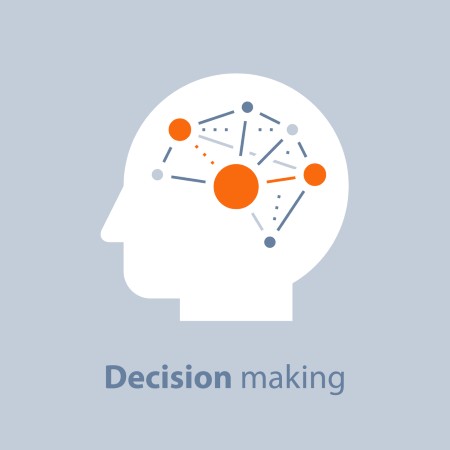How can you Improve Your Decision-making skills

If you are trying to improve your decision-making abilities A step-by-step
method can prove to be extremely beneficial. This technique allows you to take a
thoughtful and deliberate decision while sorting through the information and
assessing the possible outcomes. These are steps that you can follow to improve
your decision making skills in the workplace.
First, narrow down your choices
The fewer options you have available to you, the less overwhelmed you'll feel
while making a choice. In this case, choosing between two ideas to implement is
much easier than trying to choose among 10. It is important to eliminate
unpractical or unrealistic options, so you can only choose the ones that have
the greatest potential. To discover more information about decision-making, you
must visit guess the country
flag site.
Second, determine how important a decision is and how much time it
deserves
Prior to wasting the entire day making a single choice take a look at its
significance and then decide on how much time you will devote to the decision.
You shouldn't spend a whole day on decisions that are of little importance for
example, the brand of ink you'll need to purchase for your printers at work.
However, more important decisions should receive ample time. You can decide how
long you will give each decision prior to starting the decision-making process.
This will ensure that you are making the right decisions and prioritizing those
that are the most crucial ones.
Also, you should be as knowledgeable as possible
You'll be better able to make educated decisions if you do more research and
have more details. You should know the factors involved and all other
information that you can use to make an informed choice. If you're trying to
decide if to take on two or more employees, be sure to take the time to research
each. What experience do they have? Where did they attend school and what was
their subject? What have their references said regarding their work? You might
want to ask them for an example of their work so that you can evaluate the
samples and gain a better understanding of their abilities.
You should also be careful not to make emotional decisions
Making decisions based on your emotions could lead to impulsiveness and poor
choices. If you're emotional about an issue or decision that must be made, avoid
making the decision until you are able to be objective in the situation that is
at hand. It is important to look at the facts and not your emotions about the
choice. If possible, ask for more time so that you can make sure you are as
objective as is possible.
Think about the pros and cons.
It is crucial to know the potential advantages and disadvantages of a decision before you make it. This will help you feel more comfortable and well-prepared. Every decision has at least one disadvantage. If, for instance, you're trying to determine whether you should implement daily catered lunches for your office, a con will likely be the expense of these lunches, while an advantage is the fact that it will boost morale and appreciation of employees. If many is an issue in your business it is possible to decide not to take this step or change the plan (e.g. You may limit the number of lunches that you provide catered to one per week rather than every day. If your company requires improvement in employee satisfaction and you're financially stable, this could be a good choice to make.
Comments
Post a Comment